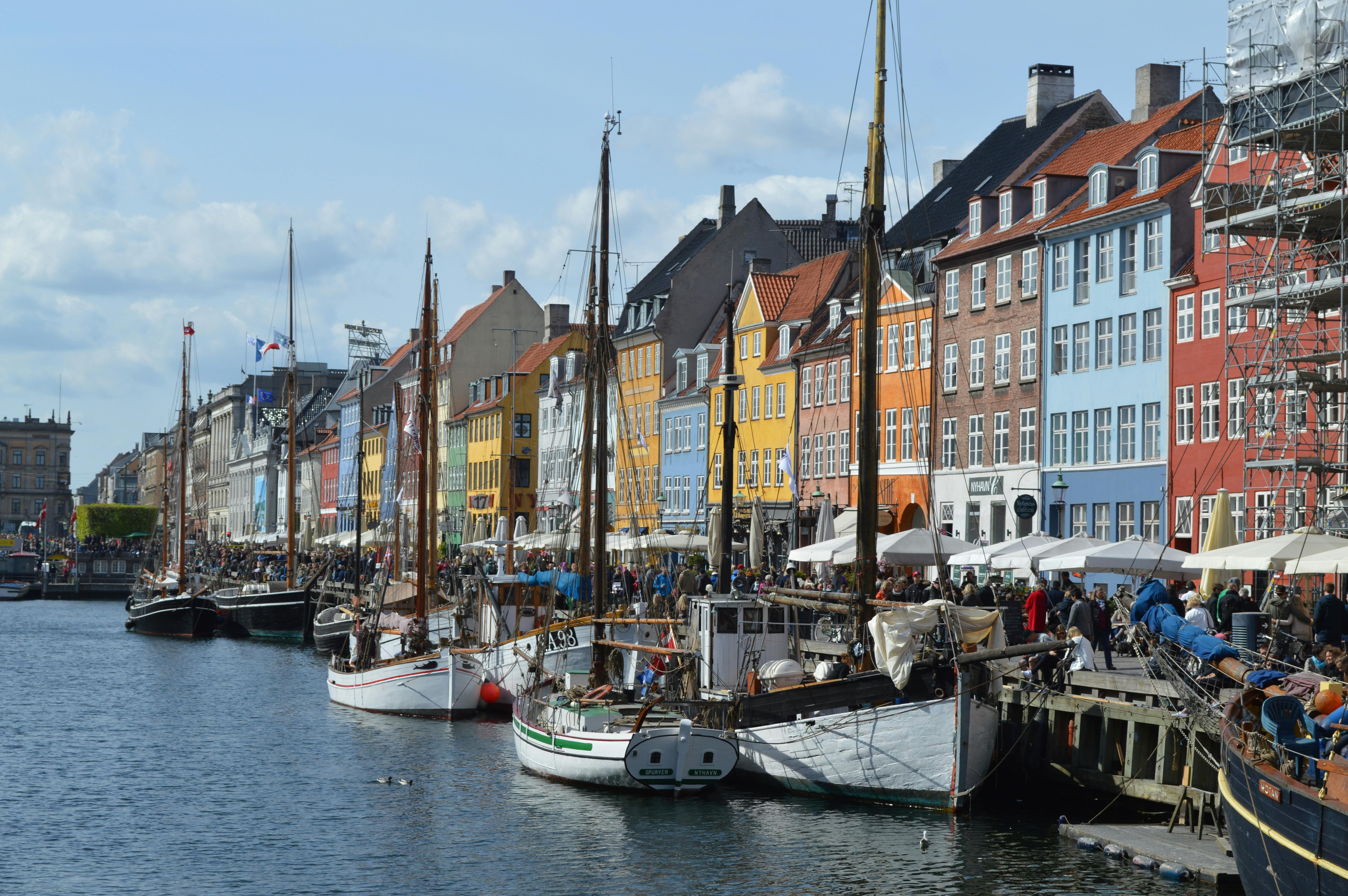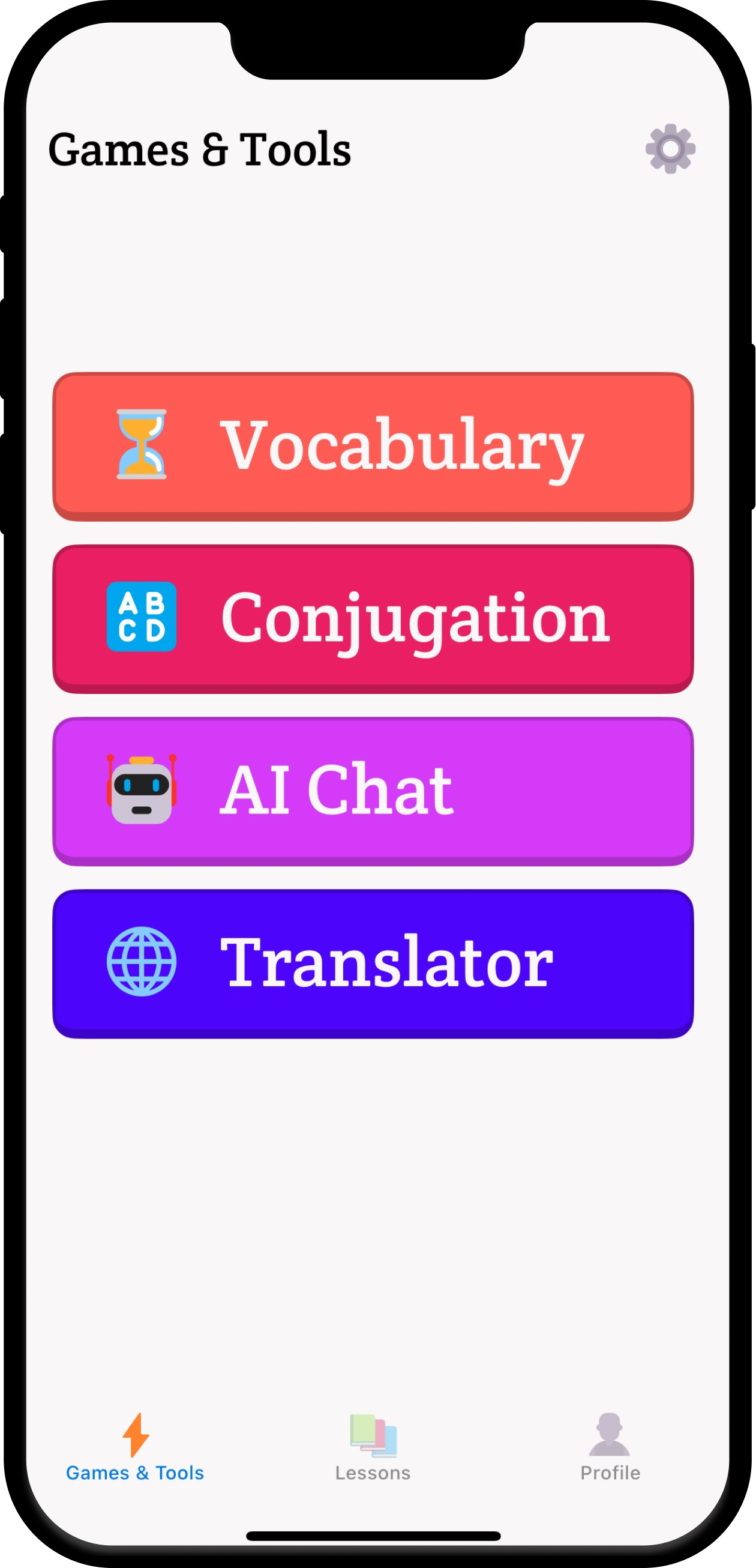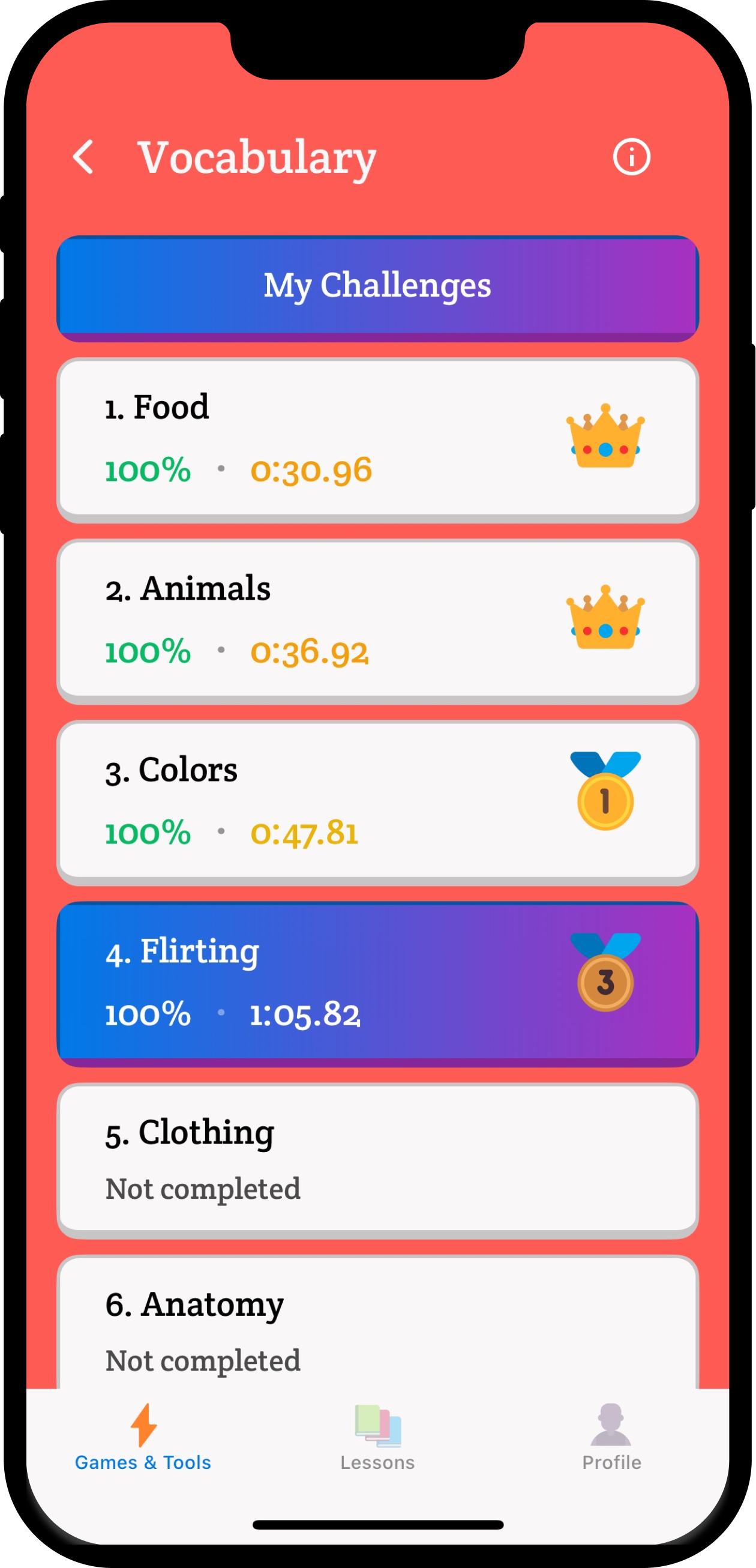100+ Danish Slang Words and Expressions You Need to Know

Table of Contents
- Common Everyday Slang
- Youth & Modern Slang
- Expressions & Idioms
- Food & Drink Related
- Social & Friendly Terms
- Work & Money Related
- Informal Exclamations
- Regional Variations
- Vulgar Slang
- Love & Relationships
Ready to Learn More?
Try PolyChat's interactive language learning games and put your new vocabulary to the test!

Games & Tools
Essential tools for every learner

Timed Challenges
Practice vocabulary & conjugation

Interactive Games
Learn through engaging gameplay
Understanding Danish slang is essential for anyone wanting to connect authentically with Danish speakers and navigate the unique culture of Denmark. While formal Danish is taught in schools, everyday conversations are filled with colorful expressions, regional variations, and modern slang that reflect the country's progressive values and contemporary lifestyle. This comprehensive guide introduces you to 100+ essential Danish slang words and expressions that will help you sound more natural and understand Danish culture.
Common Everyday Slang
- Mand: Dude, man. Hej mand, hvad laver du? (Hey dude, what are you doing?)
- Makker: Buddy, mate. Min gamle makker. (My old buddy.)
- Kammerat: Friend, comrade. God kammerat. (Good friend.)
- Fyr/Pige: Guy/girl. Den fyr er sjov. (That guy is funny.)
- Type: Guy, character. Hvilken type er det? (What kind of guy is that?)
- Fed: Cool, awesome (literally "fat"). Det er mega fedt! (That's mega cool!)
- Sej: Cool, tough. Du er sej. (You're cool.)
- Vildt: Wild, crazy, awesome. Det var vildt! (That was awesome!)
- Sindssygt: Insanely, extremely. Det er sindssygt godt. (That's insanely good.)
- Mega: Very, extremely. Mega sejt! (Mega cool!)
- Penge: Money. Jeg har ingen penge. (I have no money.)
- Lommepenge: Pocket money. Mine lommepenge. (My pocket money.)
- Hjem: Home. Jeg går hjem. (I'm going home.)
- Bil: Car. Min bil er i stykker. (My car is broken.)
- Job: Job. Jeg skal på job. (I have to go to work.)
- Ting: Thing, stuff. Hvad er det for en ting? (What is that thing?)
- Familie: Family. Min familie. (My family.)
- Folk: People. Mange folk her. (Many people here.)
- Færdig: Done, finished. Nu er jeg færdig! (Now I'm done!)
- Kom nu: Come on. Kom nu, lad os gå! (Come on, let's go!)
Youth & Modern Slang
- Hej: Hi, bye (very common). Hej, hvordan har du det? (Hi, how are you?)
- Hej hej: Bye bye. Hej hej, vi ses! (Bye bye, see you!)
- Goddag: Hello (formal). Goddag allesammen! (Hello everyone!)
- Hvad så: What's up. Hvad så, makker? (What's up, buddy?)
- Hvordan går det: How's it going. Hvordan går det i dag? (How's it going today?)
- Det går fint: It's going fine. Det går fint, tak. (It's going fine, thanks.)
- Hammer: Awesome, great. Det er hammer fedt! (That's hammer cool!)
- Lækker: Nice, attractive, tasty. Lækker bil! (Nice car!)
- Sygeste: The sickest, coolest. Det er det sygeste! (That's the sickest!)
- Vanvittigt: Crazy, insane (positive). Vanvittigt sejt! (Insanely cool!)
- Ven/Veninde: Friend (male/female). Min bedste ven. (My best friend.)
- Kæreste: Boyfriend/girlfriend. Min kæreste. (My boyfriend/girlfriend.)
- Babe: Babe (borrowed from English). Hej babe. (Hi babe.)
- Crew: Crew (borrowed from English). Mit crew. (My crew.)
Expressions & Idioms
- Det er lige meget: It doesn't matter. Det er lige meget. (It doesn't matter.)
- Sådan er det: That's how it is. Sådan er det bare. (That's just how it is.)
- Det kan du tro: You bet, you can believe it. Det kan du tro! (You bet!)
- Ingen problem: No problem. Ingen problem, jeg hjælper dig. (No problem, I'll help you.)
- Selvfølgelig: Of course. Selvfølgelig kommer jeg med. (Of course I'll come along.)
- Måske: Maybe. Måske i morgen. (Maybe tomorrow.)
- Slet ikke: Not at all. Det kan jeg slet ikke lide. (I don't like it at all.)
- Præcis: Exactly. Præcis! (Exactly!)
- Det passer: That's right. Det passer! (That's right!)
- Pokkers: Damn (mild). Pokkers, jeg glemte det. (Damn, I forgot it.)
- For søren: For Pete's sake. For søren, hvad sker der? (For Pete's sake, what's happening?)
- Kom så: Come on. Kom så, lad os gå! (Come on, let's go!)
- Sådan: Like that, good job. Sådan! (Good job!)
Food & Drink Related
- Mad: Food. Maden er lækker. (The food is delicious.)
- Brød: Bread. Jeg køber brød. (I'm buying bread.)
- Kaffe: Coffee. Vil du have kaffe? (Do you want coffee?)
- Te: Tea. Te med sukker. (Tea with sugar.)
- Øl: Beer. Skal vi have en øl? (Shall we have a beer?)
- Vin: Wine. Rødvin er godt. (Red wine is good.)
- Snaps: Traditional Danish schnapps. Snaps til maden. (Schnapps with the meal.)
- Smørrebrød: Open-faced sandwich. Smørrebrød med røget laks. (Open sandwich with smoked salmon.)
- Frikadeller: Danish meatballs. Frikadeller med kartofler. (Meatballs with potatoes.)
- Wienerbrød: Danish pastry. Wienerbrød til kaffen. (Danish pastry with coffee.)
- Rødgrød: Red berry pudding. Rødgrød med fløde. (Red berry pudding with cream.)
- Lagkage: Layer cake. Lagkage til fødselsdag. (Layer cake for birthday.)
Social & Friendly Terms
- Ven/Veninde: Friend. Min bedste ven. (My best friend.)
- Kollega: Colleague. Mine kollegaer er søde. (My colleagues are nice.)
- Nabo: Neighbor. Naboen er venlig. (The neighbor is friendly.)
- Slægtning: Relative. Min slægtning bor i Århus. (My relative lives in Aarhus.)
- Bror/Søster: Brother/sister. Min store bror. (My big brother.)
- Familie: Family. Stor familie. (Big family.)
- Folk: People. Danske folk. (Danish people.)
- Gruppe: Group. Vores gruppe af venner. (Our group of friends.)
- Hold: Team. Vores hold er det bedste. (Our team is the best.)
- Bande: Gang, crew. Hele banden. (The whole gang.)
Work & Money Related
- Arbejde: Work. Jeg har nyt arbejde. (I have new work.)
- Kontor: Office. Jeg arbejder på kontor. (I work in an office.)
- Chef: Boss. Chefen er streng. (The boss is strict.)
- Kollega: Colleague. Mine kollegaer er rare. (My colleagues are nice.)
- Løn: Salary. Min løn er ikke høj. (My salary is not high.)
- Penge: Money. Jeg har brug for penge. (I need money.)
- Kroner: Danish currency. Det koster 100 kroner. (It costs 100 kroner.)
- Euro: Euro. Vi bruger også euro. (We also use euro.)
- Firma: Company. Jeg arbejder i et stort firma. (I work at a big company.)
- Forretning: Business. Jeg har en lille forretning. (I have a small business.)
- Tidsplan: Schedule. Min tidsplan er fleksibel. (My schedule is flexible.)
- Ferie: Vacation. Jeg tager på ferie. (I'm going on vacation.)
Informal Exclamations
- Gud: God (exclamation). Gud, hvor stort! (God, how big!)
- Herregud: Good Lord. Herregud, hvad skete der? (Good Lord, what happened?)
- Åh nej: Oh no. Åh nej, det gør ondt! (Oh no, that hurts!)
- Øv: Bummer, darn. Øv, det var ærgerligt. (Bummer, that was annoying.)
- Av: Ouch. Av, det gør ondt! (Ouch, that hurts!)
- Uf: Ugh, phew. Uf, hvor træt jeg er! (Ugh, how tired I am!)
- Ah: Ah, oh. Ah, nu forstår jeg. (Ah, now I understand.)
- Nå: Well, oh. Nå, hvad skal vi så gøre? (Well, what should we do then?)
- Hmm: Hmm. Hmm, måske. (Hmm, maybe.)
- Ups: Oops. Ups, det var en fejl. (Oops, that was a mistake.)
Regional Variations
Copenhagen (København)
- Københavner: Person from Copenhagen. Jeg er københavner. (I'm from Copenhagen.)
- Indre By: City center. Jeg bor i Indre By. (I live in the city center.)
Jutland (Jylland)
- Jyde: Person from Jutland. Jeg er jyde. (I'm from Jutland.)
- Æ: I (Jutlandic dialect). Æ skal hjem. (I'm going home.)
- Mæ: Me (Jutlandic dialect). Det er mæ. (That's me.)
Funen (Fyn)
- Fynbo: Person from Funen. Jeg er fynbo. (I'm from Funen.)
- Hjemme: At home (emphasis in Funen). Jeg er hjemme. (I'm at home.)
Bornholm
- Bornholmer: Person from Bornholm. Jeg er bornholmer. (I'm from Bornholm.)
- Øen: The island. På øen. (On the island.)
Vulgar Slang
- Lort: Shit. Det er lort. (That's shit.)
- Pis: Piss. Det er pis. (That's piss/crap.)
- Fanden: The devil, damn. Fanden tage det! (Damn it!)
- Helvede: Hell. Hvad fanden! (What the hell!)
- Røv: Ass. Hold din røv! (Shut your ass!)
- Kusse: Pussy (very vulgar). Hold kæft, kusse! (Shut up, pussy!)
- Pik: Dick (vulgar). Stor pik. (Big dick.)
- Idiot: Idiot. Du er en idiot. (You're an idiot.)
- Taber: Loser. Sådan en taber. (Such a loser.)
- Klaphat: Idiot (literally "clap hat"). Han er en klaphat. (He's an idiot.)
Love & Relationships
- Kærlighed: Love. Du er min kærlighed. (You're my love.)
- Skat: Treasure, darling. Min skat. (My darling.)
- Jeg elsker dig: I love you. Jeg elsker dig meget. (I love you very much.)
- Hjerte: Heart (term of endearment). Mit hjerte. (My heart.)
- Sjæl: Soul (term of endearment). Min sjæl. (My soul.)
- Liv: Life (term of endearment). Mit liv. (My life.)
- Smuk: Beautiful. Du er meget smuk. (You're very beautiful.)
- Sød: Sweet, cute. Du er sød. (You're sweet.)
- Kys: Kiss. Giv mig et kys. (Give me a kiss.)
- Kram: Hug. Jeg har brug for et kram. (I need a hug.)
- Gift: Married. Jeg er gift. (I'm married.)
- Forlovet: Engaged. Vi er forlovet. (We're engaged.)
- Single: Single. Jeg er single. (I'm single.)
Gaming & Internet Culture
- Spil: Game. Det spil er fedt. (That game is cool.)
- Gamer: Gamer (borrowed from English). Jeg er gamer. (I'm a gamer.)
- Level: Level (borrowed from English). Hvilket level har du? (What level do you have?)
- Boss: Boss (game boss). Den sidste boss er svær. (The final boss is hard.)
- Lag: Lag (connection issues). Jeg har dårlig lag. (I have bad lag.)
- Ping: Ping (internet latency). Ping er høj. (The ping is high.)
- Noob: Noob, newbie. Du er en noob i det spil. (You're a noob at that game.)
- Pro: Pro, professional player. Han er pro til CS. (He's pro at CS.)
- Skill: Skill, ability. Han har god skill. (He has good skill.)
- Team: Team. Vores team er stærkt. (Our team is strong.)
- Chat: Chat. Skriv i chatten. (Write in chat.)
- Stream: Stream. Jeg laver en stream. (I'm doing a stream.)
Traditional & Cultural Terms
- Hjemland: Homeland. Jeg elsker mit hjemland. (I love my homeland.)
- Tradition: Tradition. Gammel tradition. (Old tradition.)
- Folkedans: Folk dance. Vi danser folkedans. (We're dancing folk dance.)
- Nationaldragt: National costume. Dansk nationaldragt. (Danish national costume.)
- Hygge: Coziness (untranslatable Danish concept). Det er hyggeligt. (It's cozy/nice.)
- Janteloven: The Law of Jante (cultural concept). Janteloven siger... (The Law of Jante says...)
- Roskilde: Famous music festival. Roskilde Festival. (Roskilde Festival.)
- Christiania: Free town in Copenhagen. Besøg Christiania. (Visit Christiania.)
Learn Other Languages from Danish with PolyChat
Are you a Danish speaker looking to learn other languages? PolyChat is the perfect app for you! As a Danish speaker, you have unique advantages when learning certain languages, and PolyChat leverages these connections to accelerate your language learning journey.
Why Danish Speakers Excel at Learning These Languages:
🇳🇴 Norwegian - Almost identical! Danish and Norwegian are mutually intelligible with 90%+ shared vocabulary.
🇸🇪 Swedish - Close Nordic cousin with similar grammar and many shared words (though pronunciation differs).
🇩🇪 German - Strong historical connection, similar grammatical structures, and many cognates.
🇳🇱 Dutch - Fellow Germanic language with surprisingly similar vocabulary and sentence structures.
🇬🇧 English - Germanic foundation with thousands of shared words and similar grammar patterns.
PolyChat's Advantage for Danish Speakers:
✅ Nordic Bridge - Master Norwegian and Swedish in record time using your Danish foundation ✅ Germanic Connection - Leverage shared roots to learn German, Dutch, and English faster ✅ Romance Language Gateway - Use your strong language learning foundation for Spanish, French, Italian ✅ Global Communication - Connect with 95+ million Vietnamese speakers, 24+ million Romanians, and more
Ready to become multilingual? Download PolyChat today and discover how your Danish language skills can unlock a world of new languages!
PolyChat - The best app to learn languages from Danish 🇩🇰→🌍
This comprehensive guide provides essential Danish slang spanning everyday conversations, regional variations, and modern culture. Danish slang reflects the country's progressive values, strong social cohesion, and the famous concept of "hygge." The best way to master these expressions is through practice with native speakers and consuming Danish media like films, music, and social media content.
Related Posts
100+ Norwegian Slang Words and Expressions You Need to Know
Discover essential Norwegian slang and colloquial expressions to understand native speakers and embrace friluftsliv culture.
Read more100 Spanish Slang Words You Need to Know
Learn the most common Spanish slang words and phrases that will help you sound like a native speaker in everyday conversations.
Read more100 French Slang Words and Expressions You Should Know
Discover essential French slang words and expressions that will help you sound more natural and understand everyday conversations with native speakers.
Read more